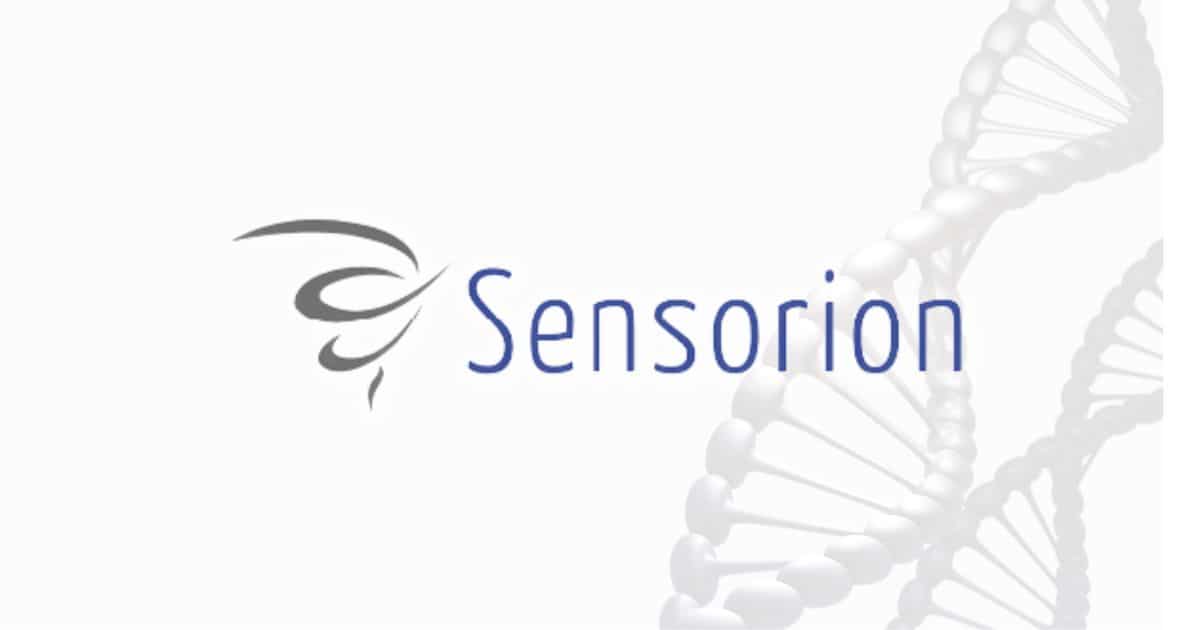MONTPELLIER, FRANCE — Sensorion, a French clinical-stage biotechnology company focused on novel therapies for hearing loss disorders, today announced a major milestone in bringing its lead gene therapy candidate SENS-501 to human trials.
The company received approval to initiate a Phase 1/2 clinical trial evaluating SENS-501 in children with a rare form of genetic deafness in France. The conclusion of the Part I of the assessment report according to regulation EU 536/2014 covering France, Italy and Germany is that the conduct of the clinical trial is acceptable.
This marks the first time the gene therapy will be tested in humans.
SENS-501 Gene Therapy: Audiogene Clinical Trial
SENS-501 aims to restore hearing in patients with mutations in the OTOF gene who suffer from severe to profound prelingual hearing impairment. The therapy involves delivering a functioning copy of the OTOF gene to transform the inner ear hair cells and enable sound transmission.
Sensorion developed SENS-501 through a partnership with the prestigious Institut Pasteur, leveraging decades of genetics research on the auditory system by the institute’s scientists.
The Audiogene phase 1/2 clinical trial focuses on evaluating the safety, tolerability, and effectiveness of intra-cochlear injection of SENS-501 for treating OTOF gene-mediated hearing impairment in pediatric patients aged 6 to 31 months at the time of gene therapy treatment. By targeting the early years of life, when auditory system plasticity is optimal, the trial aims to enhance the chances of young children with pre-lingual hearing loss acquiring normal speech and language.
Audiogene will also assess the clinical safety, performance, and usability of the administration device system developed in partnership with EVEON. The study design comprises two cohorts with two doses, followed by an expansion cohort at the selected dose. While safety is the primary endpoint for the dose escalation cohort, the auditory brainstem response (ABR) will be the primary efficacy endpoint for the dose expansion cohort. The CTA approval follows extensive preclinical studies evaluating the safety and efficacy of SENS-501, along with the successful manufacturing of the gene therapy Drug Product for the clinical trial.
Sensorion plans to provide updates on the first patient in the second half of 2024.
“Securing approval to start the phase 1/2 clinical trial for SENS-501 marks a signicant milestone for Sensorion and conrms our position of a leading company in the emerging eld of gene therapies for hearing loss. Hearing loss caused by mutations of the gene encoding for otoferlin is a challenging disorder and there are no approved curative treatments for children with congenital deafness, so this is a signicant unmet medical need. We look forward to continuing to work with healthcare providers, regulatory authorities, patient groups to address unmet and underserved medical needs in the hearing space.”
–Nawal Ouzren, Sensorion CEO
Opening Doors for Future Treatment Options
Up to 8% of congenital deafness cases stem from OTOF mutations, affecting around 20,000 newborns annually in the U.S. and Europe. But currently no approved treatments exist to restore hearing in these children.
Sensorion’s therapy has the potential to be the first curative option for this patient population. It previously received Orphan Drug Designation from the U.S. Food and Drug Administration (FDA) and European Medicines Agency (EMA), as well as Rare Pediatric Disease Designation from the FDA.
“SENS-501 represents a hope for numerous children born with deafness linked to a defect in the otoferlin gene and for whom no curative treatment exists today,” said Professor Natalie Loundon, the Audiogene trial’s coordinating investigator.
In the latter half of 2024, the company will commence patient enrollment for SENS-501, aiming for positive trial results to facilitate approval and widespread therapy accessibility. Sensorion’s scientific focus on the genetic and biological mechanisms of hearing loss, particularly the role of the Otoferlin protein encoded by the OTOF gene, addresses the congenital hearing impairment faced by children with OTOF mutations.
Supported by previous preclinical data, SENS-501 is proposed to safely deliver a functional OTOF gene, potentially restoring hearing capabilities. The surgical procedure developed for administration, similar to cochlear implantation, has shown promise in non-human primate studies.
“This regulatory green light for the inclusion of patients in France in one of the world’s rst gene therapy trials in the eld of hearing represents a major achievement for the teams at the Institut de l’Audition (Institut Pasteur center), and a crucial milestone in our strategic collaboration with Sensorion. The SENS-501 program, which aims to correct the deciency of a gene responsible for congenital deafness in order to restore hearing, is based on very solid pioneering research elucidating the role of otoferlin and the pathogenic processes elicited by otoferlin defect. Its success will pave the way for other potential therapeutic innovations, based on gene therapy in many forms of deafness and for thousands of patients.”
–Prof. Christine Petit
Regulatory approval to include patients in France marks a significant achievement in one of the world’s pioneering gene therapy trials for hearing-related issues. Professor Christine Petit, a genetics researcher at Institut Pasteur involved in SENS-501’s development, emphasizes the therapy’s potential to revolutionize the treatment of inherited deafness, opening possibilities for addressing other genetic forms of hearing loss. Despite the promising outlook, Sensorion remains committed to rigorous monitoring of safety and efficacy throughout the clinical trial, aiming to identify biomarkers for enhanced diagnosis of patients with OTOF mutations.
The innovative gene therapy approach offers hope for restoring hearing and normal auditory development, addressing a critical unmet need in the realm of congenital deafness caused by genetic defects.
References:
1. Rodríguez-Ballesteros M, Reynoso R, Olarte M, Villamar M, Morera C, Santarelli R, Arslan E, Medá C, Curet C, Völter
C, Sainz-Quevedo M, Castorina P, Ambrosetti U, Berrettini S, Frei K, Tedín S, Smith J, Cruz Tapia M, Cavallé L, Gelvez
N, Primignani P, Gómez-Rosas E, Martín M, Moreno-Pelayo MA, Tamayo M, Moreno-Barral J, Moreno F, del Castillo I.
A multicenter study on the prevalence and spectrum of mutations in the otoferlin gene (OTOF) in subjects with
nonsyndromic hearing impairment and auditory neuropathy. Hum Mutat. 2008 Jun;29(6):823-31. doi: 10.1002/humu.20708. PMID: 18381613.
2 FDA Orphan Drug Designations and Approvals https://www.accessdata.fda.gov/scripts/opdlisting/oopd/listResult.cfm
3 EU Community Register of orphan medicinal products https://ec.europa.eu/health/documents/communityregister/html/o2698.htm
About Sensorion
Sensorion is a pioneering clinical-stage biotech company, which specializes in the development of novel therapies to restore, treat and prevent hearing loss disorders, a significant global unmet medical need. Sensorion has built a unique R&D technology platform to expand its understanding of the pathophysiology and etiology of inner ear related diseases, enabling it to select the best targets and mechanisms of action for drug candidates.
It has two gene therapy programs aimed at correcting hereditary monogenic forms of deafness, developed in the framework of its broad strategic collaboration focused on the genetics of hearing with the Institut Pasteur. OTOF-GT targets deafness caused by mutations of the gene encoding for otoferlin and GJB2-GT targets hearing loss related to mutations in GJB2 gene to potentially address important hearing loss segments in adults and children. The Company is also working on the identification of biomarkers to improve diagnosis of these underserved illnesses.
Sensorion’s portfolio also comprises clinical-stage small molecule programs for the treatment and prevention of hearing loss disorders.
Sensorion’s clinical-stage portfolio includes one Phase 2 product: SENS-401 (Arazasetron) progressing in a planned Phase 2 proof of concept clinical study of SENS-401 in Cisplatin-Induced Ototoxicity (CIO) and, with partner Cochlear Limited, in a study of SENS-401 in patients scheduled for cochlear implantation. A Phase 2 study of SENS-401 was also completed in Sudden Sensorineural Hearing Loss (SSNHL) in January 2022.
Source: Sensorion







